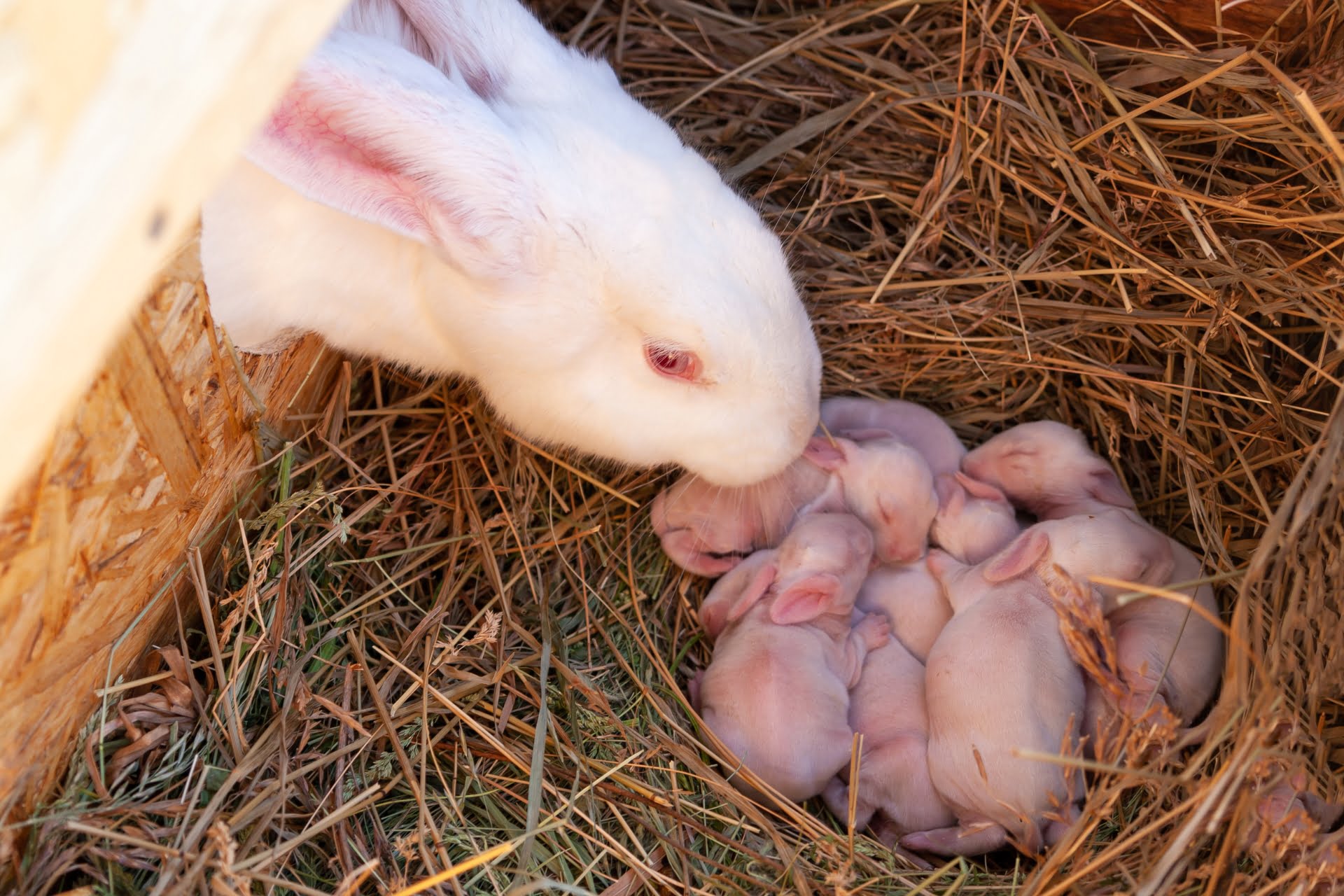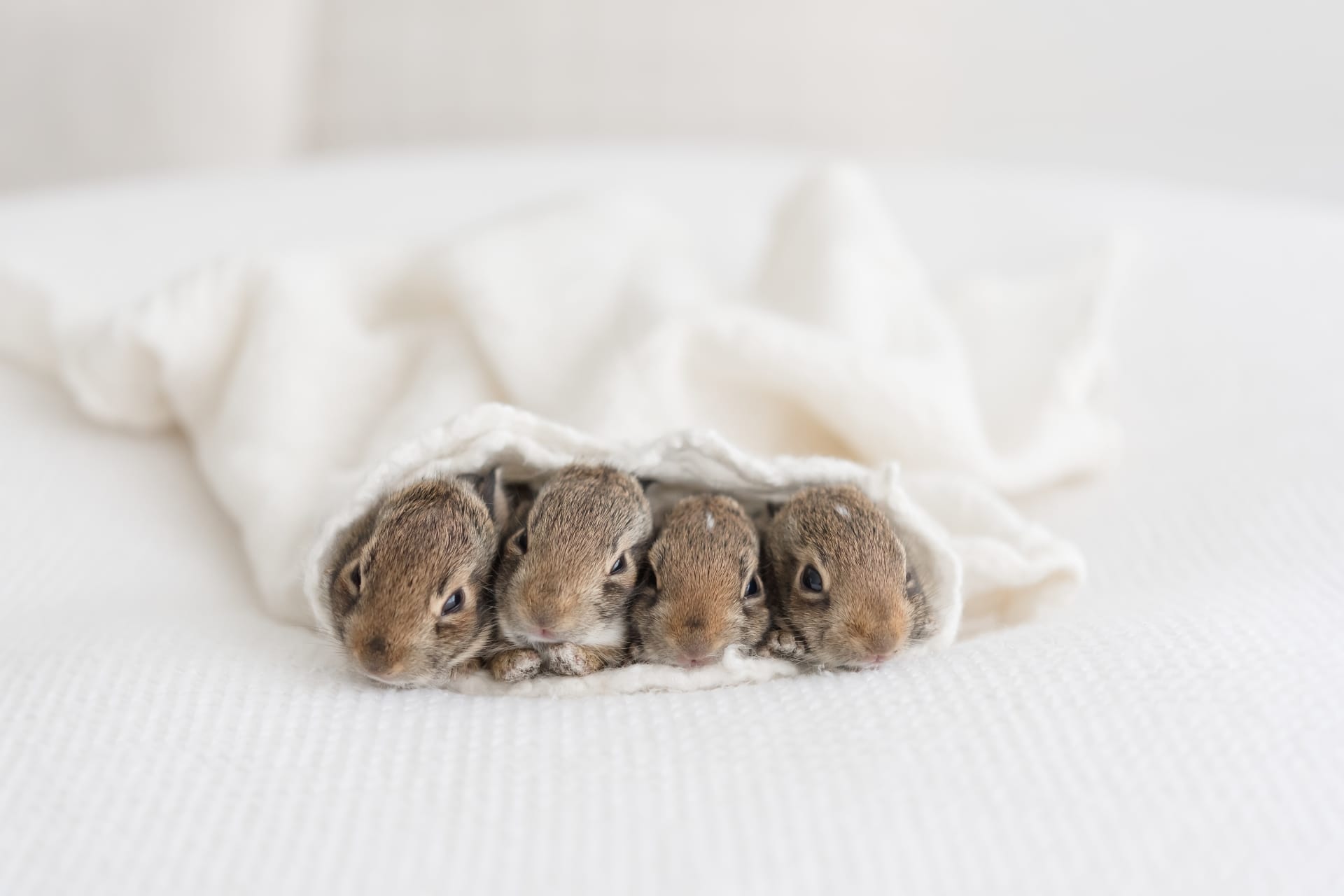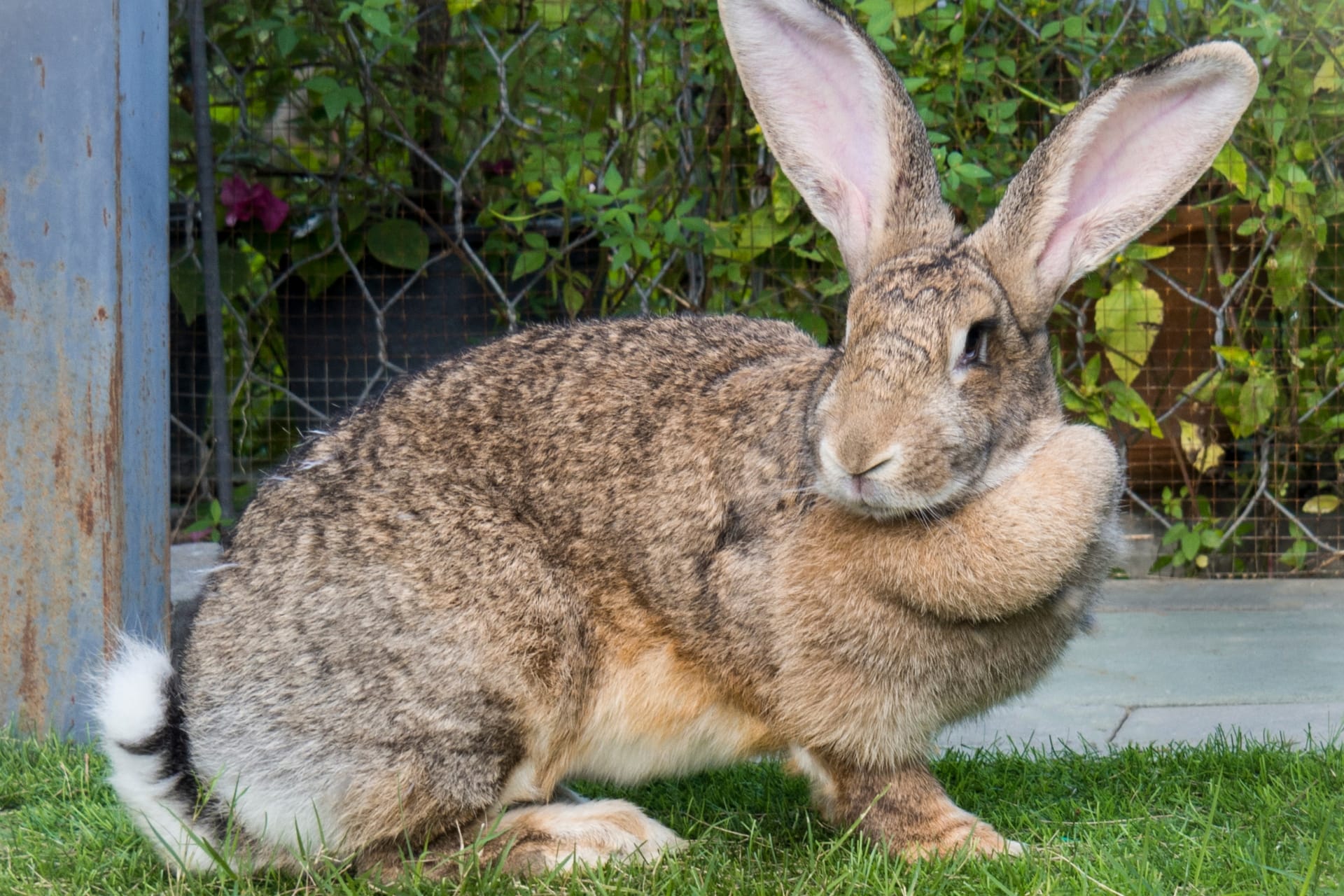In a nutshell: The rabbit gestation period lasts 28-35 days, with most breeds delivering around 31 days. Get ready for kits with this quick guide!
Rabbits are famous for their rapid reproduction, turning your home into a fluffy bunny haven in under a month. Whether you’re a rabbit owner preparing for a litter or simply curious about these prolific breeders, understanding the rabbit gestation period is key to keeping your doe (rabbit mom) and her kits (baby bunnies) thriving. In this article, we’ll explore how long rabbits are pregnant, signs of pregnancy, care tips, and even a visual timeline of the stages—everything you need to welcome those tiny hoppers with confidence.
What is the rabbit gestation period?
The rabbit gestation period—the time from conception to birth—typically spans 28 to 35 days, with an average of 31 days for most domestic breeds. However, this varies by breed and individual doe. Smaller breeds like the Netherland Dwarf often deliver closer to 28 days, while larger breeds like the Flemish Giant may take up to 35 days—or occasionally longer. Here’s a handy table breaking down gestation periods for different rabbit breeds to help you anticipate those adorable kits:
| Rabbit Breed | Gestation Period (Days) |
|---|---|
| Netherland Dwarf | 28-31 |
| Flemish Giant | 31-35 |
| European Rabbit | 28-35 |
| Eastern Cottontail | 27-28 |
| Swamp Rabbit | 35-37 |
| Desert Cottontail | 28-30 |
| Common Tapeti | 42-45 |
| New England Cottontail | 28-30 |
| Mexican Cottontail | 30-32 |
A visual timeline of rabbit pregnancy stages
To help you track your doe’s journey, here’s a visual timeline of the key stages of rabbit pregnancy:
Day 1–7: Fertilization and Early Development
After mating, eggs are fertilized, and embryos begin to form. The doe may not show obvious signs yet.
Day 8–14: Embryo Implantation
Embryos implant in the uterus. Look for subtle signs like increased appetite or slight nesting behavior.
Day 15–21: Fetal Growth
Fetuses grow rapidly, and the doe’s belly may swell. A vet can confirm pregnancy via palpation around day 14.
Day 22–28: Nesting and Final Prep
The doe builds a nest with hay and fur. Kits are nearly ready, and she may become more territorial.
Day 28–35: Kindling (Birth)
The doe delivers 4-12 kits, usually at night. Ensure a quiet space for her and the newborns.
Fast, right? Rabbits aren’t just known for their fluffy tails—they’re masters of quick reproduction. Fun fact: a doe can conceive again within hours of giving birth, making them one of nature’s most prolific breeders! 🐇
How soon can rabbits get pregnant after giving birth?
Brace yourself—rabbits can conceive within hours of kindling! This rapid reproductive cycle is why rabbit populations explode so quickly. However, constant pregnancies can exhaust your doe, increasing health risks like malnutrition or uterine issues. Experts recommend waiting 4-8 weeks between litters to give her body a break—think of it as a well-deserved bunny vacation.
Do rabbits get pregnant every time they mate?
Not always, but they’re close to pros at it. Rabbits are induced ovulators, meaning mating triggers ovulation, boosting the odds of pregnancy. Still, factors like the doe’s cycle, stress, or poor timing can prevent conception. So, while rabbits are fertility champs, it’s not a 100% guarantee every time they mate.
How to know if your rabbit is pregnant
Wondering if your doe is expecting? Look for these telltale signs that kits are on the way:
- Nesting Behavior: Around day 22-28, she may gather hay, straw, or pull fur to build a nest—her DIY nursery!
- Increased Appetite: A hungry doe eating more than usual could be fueling a growing litter.
- Reclusive Behavior: She might retreat to a quiet corner, keeping her pregnancy under wraps.
- Weight Gain: A fuller belly by day 15-20 is a strong clue—gently feel for kits if you’re trained.
- Territoriality: Some does get feisty or protective as hormones kick in.
For confirmation, try gentle abdominal palpation around day 14—trained hands can feel tiny kits (about the size of grapes). Caution: Leave this to a vet or experienced breeder, as mishandling can harm the doe or kits. When in doubt, a vet ultrasound or exam is your safest bet.
Your inbox needs this
Subscribe to the Petme newsletter for weekly updates with pet care tips, tales, and member-only perks.

Rabbit pregnancy care: How to prepare for your doe’s big day
Your pregnant doe deserves top-notch care to ensure a smooth kindling. Here’s how to pamper her and prep for the kits:
Setting up the perfect nesting space
Create a cozy nesting box—think sturdy wood or plastic, lined with soft hay or straw. Place it in a quiet, low-traffic corner of her enclosure to minimize stress. As kindling nears (day 28+), keep disturbances—like loud noises or curious pets—to a minimum. She’s gearing up for her big moment!
Feeding your pregnant rabbit
Fuel her marathon with a balanced diet:
- Unlimited Hay: Timothy or meadow hay keeps her digestion on track.
- Fresh Water: Always available—hydration is key.
- Rabbit Pellets: Opt for a high-quality formula for pregnant does (check with your vet).
- Veggies: Leafy greens like kale or parsley are great, but skip new foods to avoid tummy upset.
Health checks and vet visits
Pregnancy is taxing—watch for red flags like lethargy, discharge, or appetite loss. Schedule a vet check around day 14-20 to confirm all’s well. If anything seems off (e.g., no kindling by day 35), call your vet ASAP—it could signal a false pregnancy or complications.
Kindling: What to expect during rabbit birth
Kindling is typically a swift, solo act—often at night, lasting 15 minutes to an hour. The doe delivers, cleans, and nurses her kits without fanfare. Litters range from 4-12 kits, with larger breeds like Flemish Giants often producing bigger broods. No midwifery needed—she’s a natural!
Caring for newborn rabbit kits
Newborn kits arrive tiny, blind, and hairless, relying on mom for warmth and milk. Key tips:
- Leave Them Be: Avoid handling for the first week to reduce stress.
- Check Growth: After day 7, ensure kits are gaining weight and nursing (bellies should look full).
- Warmth: Keep the nest at 65-70°F—use a heating pad if it’s chilly, but avoid direct contact.
What if a kit seems weak or isn’t nursing?
Weak kits need quick action—check for milk bands (white streaks on their bellies from nursing). If absent, or if a kit’s lethargic, consult your vet. Hand-feeding with kitten milk replacer might be needed, but it’s a last resort—mom’s milk is best.
FAQs: Everything you wanted to know about rabbit pregnancy
How many months is a rabbit pregnant?
It’s less than a month—28-35 days, averaging 31 days for most breeds.
How many litters can a rabbit have in a year?
Up to 12, thanks to their 31-day gestation and instant re-breeding ability. But for her health, aim for 3-4 litters max—give her a break!
How to know if a bunny is pregnant?
Watch for nesting, appetite spikes, or reclusiveness. A vet can confirm with palpation or ultrasound by day 14.
How soon can rabbits get pregnant after giving birth?
Within hours—crazy, right? Wait 4-8 weeks before re-breeding to keep her healthy.
Do rabbits get pregnant every time they mate?
Not always. Induced ovulation boosts the odds, but timing and stress can foil it.
Conclusion: Mastering rabbit gestation
From 28-35 days of gestation to a nest full of kits, rabbits are speedy breeders—but with the right know-how, you’ll be ready. This guide covers how long rabbits are pregnant, signs to watch, and care tips to keep your doe and kits thriving. For more rabbit wisdom, explore our rabbit care tips here. And don’t miss Petme—our pet social network where you can share your bunny journey, create pet profiles, and connect with fellow rabbit lovers. Your doe’s next litter could be the talk of the community! 🌟












My brother suggested I might like this web site. He used to be entirely right. This submit actually made my day. You can not believe simply how so much time I had spent for this information! Thanks!